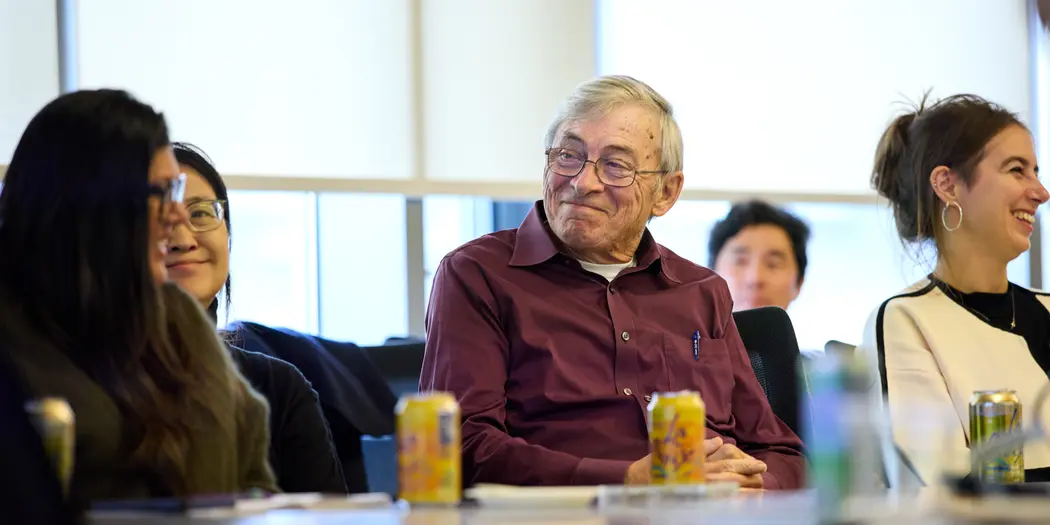IWER
IWER Research Seminar Series
The MIT Institute for Work and Employment Research hosts a weekly Tuesday seminar during the academic year. One of the longest-running seminar series at MIT, it draws faculty and doctoral students from across the Institute and the wider academic community. Seminars are held on Tuesday afternoons from 1 to 2:30 p.m; to learn more, see the schedule below or contact iwer@mit.edu for more information.
Attendees at a recent session of the IWER research seminar series
Credit: Kelly Davidson
Institute for Work and Employment Research (IWER) Spring 2026 Seminars

-
February 3, 2026

NO SEMINAR
-
February 10, 2026

"Future Manufacturing – Good Jobs and Workforce Needs"
Panelists:
Ben Armstrong, MIT Industrial Performance Center
Suzanne Berger , MIT Political Science
Elisabeth Reynolds, MIT DUSP
Moderator: Anna Stansbury, MIT Sloan School of ManagementJoin MIT IWER for a panel conversation with researchers across MIT discussing key questions about the future of US manufacturing: What jobs will this create, and what decisions—by policymakers or business leaders—are needed to make these "good" jobs? What skills are required, and how well can the current education and workforce system meet these needs?
-
February 17, 2026

NO SEMINAR
-
February 24, 2026

"Minimum Wages and Workplace Injuries"
Anna Stansbury, MIT Sloan School of Management -
March 3, 2026

Isabella Loaiza, MIT Sloan School of Management and Roberto Rigobon, MIT Sloan School of Management
-
March 10, 2026

Mabel Abraham, Columbia Business School
-
March 17, 2026

NO SEMINAR
-
March 24, 2026

NO SEMINAR
-
March 31, 2026

The Unequal Career Consequences of Misconduct Disclosure: Evidence from Brazil’s Anti-Corruption Crackdown
Moksh Garg, MIT Sloan School of Management and Emilio J. Castilla, MIT Sloan School of Management
-
April 7, 2026

"Clause and Effect: Theory and Field Experimental Evidence on Noncompete Clauses"
Evan Starr, Robert H. Smith School of Business at the University of Maryland
*Jointly held with the Organizational Economics Seminar
-
April 14, 2026

Adam Reich, Columbia University
-
April 21, 2026

NO SEMINAR
-
April 28, 2026

Nicholas Bloom, Stanford University
*Jointly held with the Organizational Economics Seminar -
May 5, 2026

Raffaella Sadun, Harvard Business School
*Jointly held with the Organizational Economics Seminar- to be held during OE Session from: 2:30-4:00pm in E62-650
-
May 12, 2026

Chelsea R. Lide, MIT Sloan School of Management

